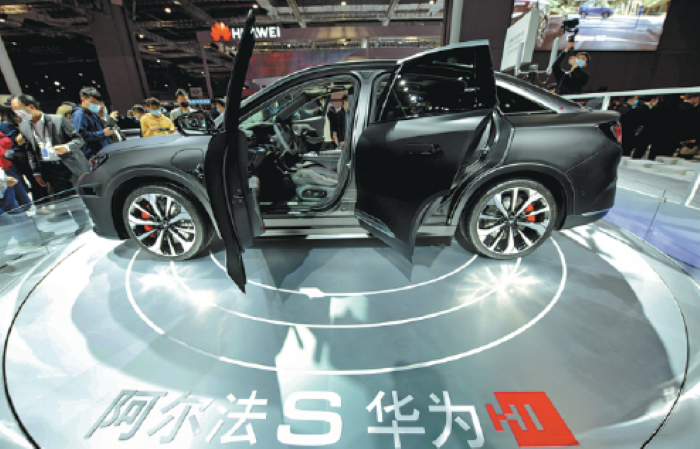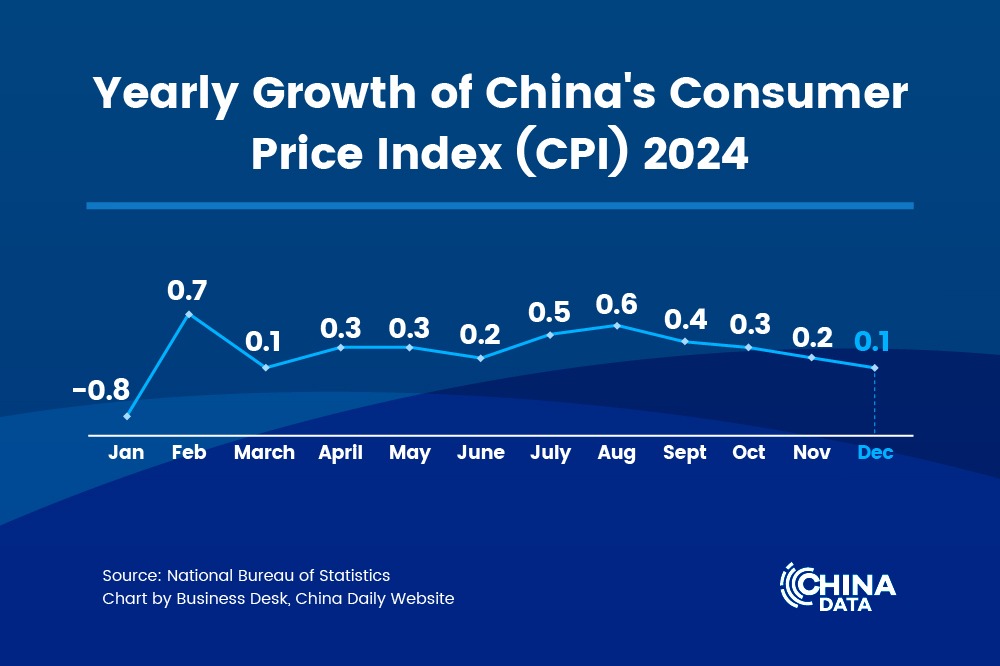Auto show experiences influx of tech companies' products


Autonomous driving, operating system create big industry change
This year's Shanghai auto show may take visitors aback. The number of tech companies and their exhibits might make people doubt if they had gone to the right venue instead of the biennial event for vehicle makers and car aficionados.
There are almost 100 technology companies, roughly one-tenth of the exhibitors, according to the event's organizing committee.
Big names from Huawei to Baidu are there explaining their understanding of smart vehicles and showing their products, covering AI chips, high-definition maps, and even car models.
The booth where the first Huawei vehicle is shown is one of the most popular destinations for journalists.
The model, called Huawei Inside, is made by Arcfox. It is the world's first-ever vehicle featuring Huawei's operating system, chips and autonomous driving solutions.
A video clip showed that it can navigate itself through busy urban traffic without a driver. Huawei said that its vehicles can drive themselves for 1,000 kilometers.
Baidu's autonomous driving unit, Apollo, is present at the auto show as an independent exhibitor.
It said Apollo will come preinstalled with at least one mass-produced car model each month in the second half of this year.
The tech giant aims to have Apollo's solutions preinstalled on 1 million vehicles over the next three to five years.
DJI, which was until now known as a drone maker, is demonstrating its sensors and software solutions for autonomous vehicles as well.
A DJI representative said the company started research and development efforts on smart vehicle functions around five years ago.
Baojun, a local Chinese brand, and German giant Volkswagen are among its customers. The first Baojun model sporting DJI solutions is scheduled to roll off the assembly line later this year.
Electrification efforts are everywhere. Chances are slim that people can find a booth where electric cars or at least plug-in hybrids are not available.
Volkswagen, the most popular brand in China, made the global debut of the electric ID.6 crossover. The model will hit the market in the summer. By 2023, it will have eight ID vehicles on sale in China.
BMW revealed its electric flagship i-X SUV, boasting a new-generation iDrive that combines the infotainment system and digital instrument dials into a wide screen.
The carmaker said 50 percent of BMW sales in 2030 will be electric. "There is no premium without sustainability," said BMW Group Region China President CEO Jochen Goller.
Ford's electric Mustang Mach-E is another highlight. Six cameras and 17 radars come as standard. Its performance version can accelerate from 0-100 kilometers per hour in 3.7 seconds.
The vehicle, produced by Changan Ford, will be delivered in the second half of the year to take on its rivals, in particular Tesla's Model Y, said Izzy Zhu, chief operating officer of Ford China's electric car unit.
British luxury carmaker Bentley is showcasing the China debut of its plug-in hybrid Bentayga. By 2023, it will have a hybrid in every model line and by 2030 every single car launched will be fully electric.
Chinese carmakers are showing an even bigger number of electric vehicles. Besides the well-known trio of Nio, Xpeng and Li Auto, Zeekr from Geely and SAIC's IM are presenting their first vehicles.
SAIC-GM-Wuling, whose budget Hong Guang Mini EV has beat Tesla's Model 3 in sales, has unveiled a convertible variant, to further boost its appeal to young customers.
Electric cars are more than just new ways of moving people but novel methods of selling mobility solutions, which started ahead of this year's auto show.
Volkswagen is selling its electric vehicles directly to customers and at fixed prices. Other traditional carmakers including Ford and Volvo are following suit.
Traditionally, automakers set an official retail price for their vehicles, which are first sold to dealers who, in turn, sell them to the public.
Auto dealers maintain an inventory of vehicles and offer discounts or charge premium depending on demand.
This persuades potential customers to visit several dealers to figure out the best possible deal and also bargain for the lowest price.
But even seasoned bargain-hunters sometimes find it time-and energy-consuming, which could delay sales as consumers may wait endlessly for better deals, necessitating multiple visits to dealers.
Yang Siyao, a senior executive at SAIC Volkswagen, said the change has something to do with electric car startups such as Tesla and Nio.
"They have been selling vehicles at fixed prices, so electric car buyers take it for granted that the deals don't involve bargaining," Yang said.




































